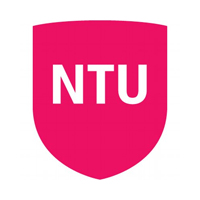fees waived
Youth Justice, BA (Hons)
Nottingham Trent University, United Kingdom
Ranking in UK
Law
Law
Law
Costs
food & rent S$16.9k / year
Entry requirements
Scholarships
Limited quantity
Limited quantity
Limited quantity
Information
Code
Intakes
Website (External)
Programmes
Information
Duration
2029
Youth justice, a specialized area of criminology, delves beyond media headlines on issues like drugs, gangs, and knife crime to examine the real factors influencing young offenders. This degree challenges assumptions, such as the UK's age of criminal responsibility at 10—the lowest in Europe—and explores when children can truly comprehend their actions, alongside the roles of family, community, and societal pressures that may lead to criminal paths. Through a balanced lens, students investigate psychological, social, and political influences on juvenile justice globally, learning from experts with firsthand experience to uncover truths about at-risk youth and confront personal biases.Why choose this course? It offers comprehensive exploration through guest speakers, personalized learning in small classes, real-world skills via a four-week placement, and alignment with the Youth Justice Board's skills matrix. Core modules span research skills, youth crime dynamics, development, ethics, system evolution, assessments, interventions, and a final-year dissertation, equipping students to make meaningful impacts in youth justice practice.
Prepare for a deep-dive into the history, evolution, and processes of the youth justice system — and learn everything you’ll need to know as a professional practitioner. You’ll grow as a person throughout the course, building the confidence and communication skills to work successfully with young people, families, and a whole host of partner agencies. Year One modules are: Research and Study Skills for Youth Justice; Youth Crime and Social Inclusion; Child and Adolescent Development; Values, Ethics and Children's Rights in a Youth Justice Context; Evolution of the Youth Justice System; Managing Transitions Year Two modules are: Assessment and Report Writing in Youth Justice Practice; The Secure Estate and Resettlement; Research Methods in Youth Justice; Effective Practice in Youth Justice. Final Year modules are: Restorative Justice, Victims and Victimology; Delivering Interventions in Youth Justice Practice; Law, Sentencing and the Role of the Courts; Safeguarding in Youth Justice Practice; and your Dissertation.
A local representative of Nottingham Trent University in Singapore is available online to assist you with enquiries about this course.

